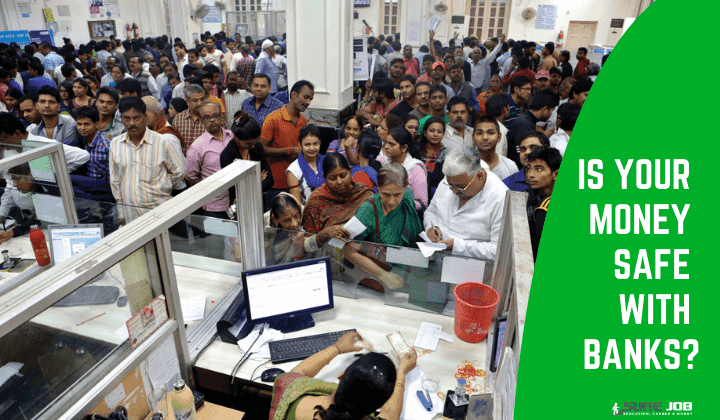Famous American businesswoman, Shirley Temple says: “Time is money. Wasted time means wasted money means trouble.” In these few words, the former American singer, actress and diplomat sums up time value of money and its importance.
What is the ‘time value of money‘ and what time value of money indicates? Let’s see.
Understanding Time Value of Money

Consider this ubiquitous scenario. For example, you’re getting Rs.100 as pocket money per day as a student. Or a salary of Rs.10,000 per month as an employee or Rs.5,000 monthly pension as a retiree. According to your needs, there are a lot of things that can be done with this money today.
Now imagine a scenario, you’re getting the same amount of money after 10 years. By any yardstick, you’ll not be able to do the same things that you’re doing today.
The same amount of money will be insufficient. Obviously, the student will need more pocket money, an employee requires a higher salary and the retiree, a larger pension.
That’s because the value of money drops over a period of years. Hence, an amount that’s good enough today would be quite small. That’s due to several factors such as inflation and greater needs that would emerge over a span of time.
Now let’s suppose the student saves the Rs.100, the worker invests the Rs.10,000 and the retiree stashes the Rs.5,000 in an ordinary savings bank account. What happens?
At the current, average annual interest rate on savings bank, 4.50 percent, the money would grow. Hence, the student will get Rs.104.50, the employee gets Rs.10,450 while the retiree gets Rs.5,225.
The formula we use is: 100 X 0.045= 104.50. Or in other words Current Value X Rate of Interest/100.
How Time Value of Money Works
Since you’ll have understood this simple and easy formula, let’s see how time value of money works.
Let’s say all the three- the student, the employee and the retiree don’t use the money and keep it in their bank account. They’ll get interest on Rs.104.50, Rs.10,450 and Rs.5.225 respectively.
Means, at the end of two years, the Rs.104.50 becomes Rs.109.20, the Rs.10,450 becomes Rs.10,920 while Rs.5,225 grows to Rs.5,460.12.
After two years, the student, the employee and the retiree decide to spend the money. What happens?
They’ll most likely find that what they could buy two years ago with Rs.100, Rs.10,000 and Rs.5,000 respectively now costs higher.
Depending on the rate of inflation, there are three possibilities.
- They might have to spend the entire amount, including the interest.
- Or, they could save something from the principle amount plus interest.
- And in extreme cases, they may have to add a little more money to buy the same things.
However, you’re a winner in each of these scenarios. Since the money has grown, you are able to meet expenses. Or save some money. And in the worst-case scenario, you’ll end up paying slightly more than what your savings.
On the reverse side, if you’d not saved, you’ll have ended up losing money in each of these three situations.
Future Time Value of Money
The Future Pay Value of your money can be found from this formula for Rs.10,000 today:
Rs.10,000 x (1 + .045)-1 = Rs.9569.38.
Means, if you don’t invest the money, the value of your money is lower after a year if you don’t invest. Or, the same amount of money will buy you fewer things than right now.
Using the same formula, you can calculate the time value of money over any number of years. You’ll definitely see how the value depreciates within a short span of three to five years.
Using Time Value of Money
The above two formulas can be easily applied to know the present and future time value of money. But what if someone offers to pay you Rs.20,000 after five years for investing Rs.10,000. Would it really be true or would you fall victim to some scam?
Here, we can apply this simple formula.
Rs 20,000 x (1 + 0.04)-4
You’ll find the amount is much lower than your investment. What does this imply? That either the scheme is a scam. Unless we’re talking about an investment plan from some reputed bank or financial corporation.
Time Value of Money Matters
Yes, time value of money matters a lot, when you’re planning for the future and especially, retirement. Unless you know these simple calculations, it’s likely you’ll end up investing too little on an excellent plan or too much on something that fetches lower returns.
Knowing the time value helps you tap the power of compounding to your benefit. Here’s how time value of money matters:
Retirement Fund/ Annuities
You’ll definitely want a financially secure life and enough money in those golden years when steady income is no longer available.
Using time value of money and power of compounding helps you arrive at a sum of money you’ll need post-retirement. Hence, you can invest in retirement plans accordingly.
Stocks
Understandably, stock markets are rife with uncertainties. However, staying invested in specific stocks for long helps you turn the time value of money to your advantage.
You can buy stocks right now with that money. Over a period of say 10 years, your stock holdings will definitely be worth much more if you calculate how much you would have lost if you hadn’t invested.
Refer: Best Trading Apps for Stock Investment
Exchange-Traded Funds
Exchange-Traded Funds or ETFs allow you to invest in diverse markets with small amounts of money. For the uninitiated: ETFs are a bunch or bouquet of stocks of various companies operating in the same or different sectors.
A unit of ETF is traded like stocks on the stock markets. When you buy an ETF, its value falls or rises during a day’s trade. But when you stay invested for long, the returns are amazingly high.
Mutual Funds
Time value of money works best when you invest in Mutual Funds, especially through Systematic Investment Plans (SIP). Nowadays, you can start a SIP with as low as Rs.500 per month for most Mutual Funds.
This is an amount that most Indians can afford to set aside monthly. Over the number of years, the number of Mutual Fund units go on adding up. Thus, at the end of 10 or 15 years, you’ll have adequate units worth a lot of money.
However, the trick here is to opt for the Direct-Growth plan where you get more units of the Mutual Fund added to your portfolio instead of taking a dividend that you may spend.
You can check out my detailed list of Mutual Funds to help you choose the most suitable one.
Fixed Deposits
Depending upon where you invest the money and your age, Fixed Deposits with banks or renowned credit societies also help you get the best from time value of money.
Some banks pay as high as nine percent per annum on Fixed Deposit. If you keep the money for longer years, the power of compounding comes into play.
Hence, your annual interest also gathers interest to give you superb returns. This negates the evil effects of inflation. The time value of money you get can be higher or at least equal to the amount you’ve invested.
Refer: What is Recurring Deposit?
Monthly Income Scheme
Monthly Income Scheme or MIS is very popular among senior citizens and retirees. India Posts Savings Bank and India Posts Payments Bank offer MIS.
Senior citizens can deposit a large amount of money with India Posts banks and get fixed monthly income that can help meet or defray living expenses.
However, a lot of senior citizens reinvest the monthly payouts on Recurring Deposit accounts to accrue more interest. Consequently, they have enough money that beats inflation by putting time value of money to use.
However, not all investment or savings plans will offer you time value for money or work on the power of compounding. Life insurance is one such example.
Life Insurance & Time Value of Money
Life insurance isn’t exactly investment or savings. Instead, it just serves as a buffer to shield your family against financial crises after your death.
For most families where a spouse may be unable to earn after the demise of the breadwinner, a life insurance policy provides ideal security to some extent.
However, if you calculate the premiums on a life insurance plan in terms of time value of money and power of compounding, you’ll be disappointed greatly.
Despite all sorts of claims and offers made by insurance agents, the money you put on a life insurance scheme doesn’t fetch you as much as your survivors should be getting.
Vehicle Loans
Owning a vehicle is a dream for many. And a lot of us fulfill this cherished dream by buying one on loan or what’s commonly known as vehicle finance. This doesn’t really work in favor of the buyer.
For this simple reason: the cost of a vehicle depreciates or drops steadily over a number of years. A vehicle that’s just a year older will fetch much lesser price when you sell it on the open market. Hence, you’re already losing money.
Secondly, vehicle finance or loan attracts interest. Using the time value of money, you’ll find you’re losing money on two counts.
Again, this doesn’t mean you should avoid a vehicle loan. Nowadays, a vehicle is more of a necessity than a luxury. Owning a vehicle can open your doors to new job opportunities and increase your income too.
Home Loans
Home loans are very common in India. That’s because everyone wants to have own shelter. A home loan is excellent too, provided you’re buying the right property at the right time at the right price.
By the time you’ve paid a home loan, you’ll find that dream house has cost you twice at its tag price.
Again, the market value of the house might not justify the amount you paid due to loan. Also, an older house has a lower value than a newer one, unless it’s in some swanky area.
Hence, use the time value of money calculation before rushing to take a home loan. Consider their floating and fixed interest rates too.
Closing Thoughts
A lot of great financial blunders can be avoided simply by understanding the time value of money and why it matters.
Banks and financial institutions utilize it to reap the best profits that would impress stakeholders. By understanding the time value of money and why it matters, you can make the right financial decisions, vital to your life.








